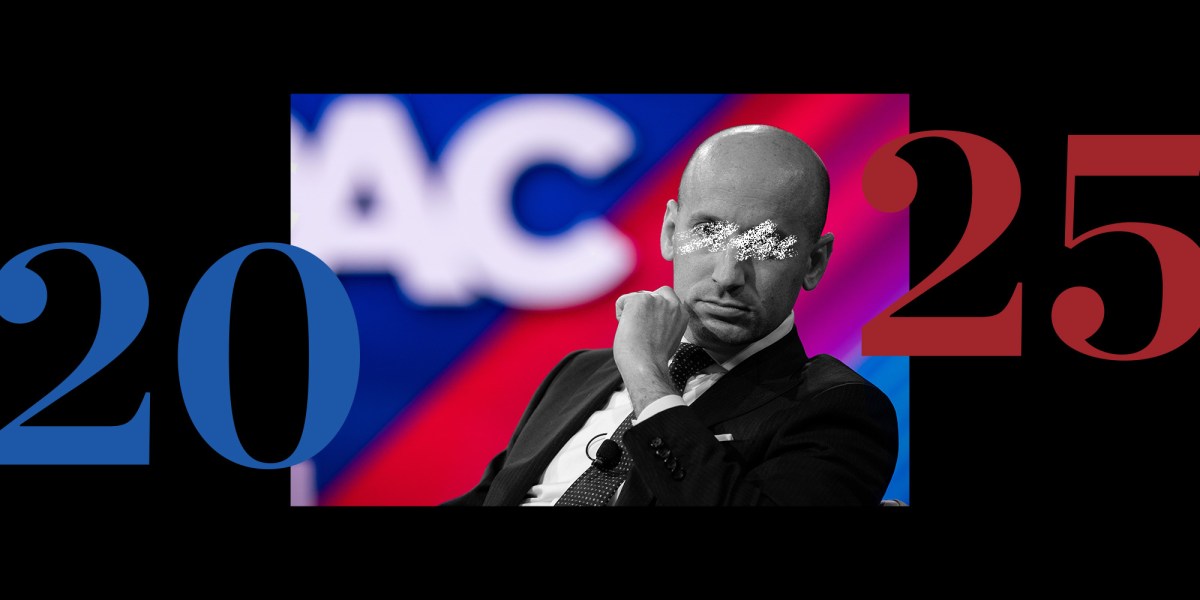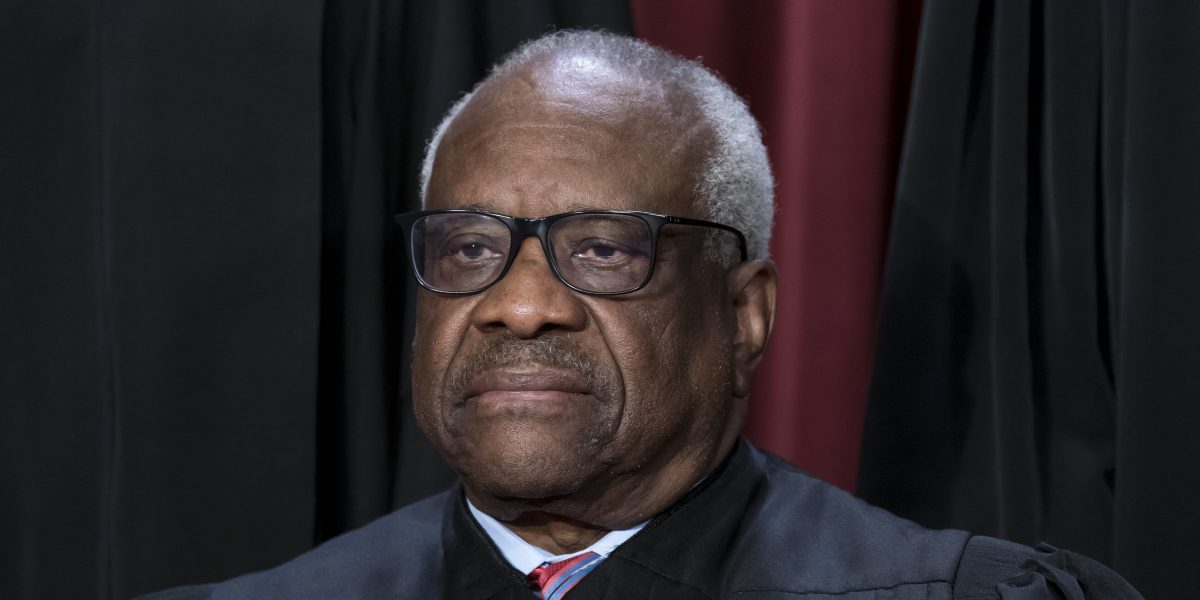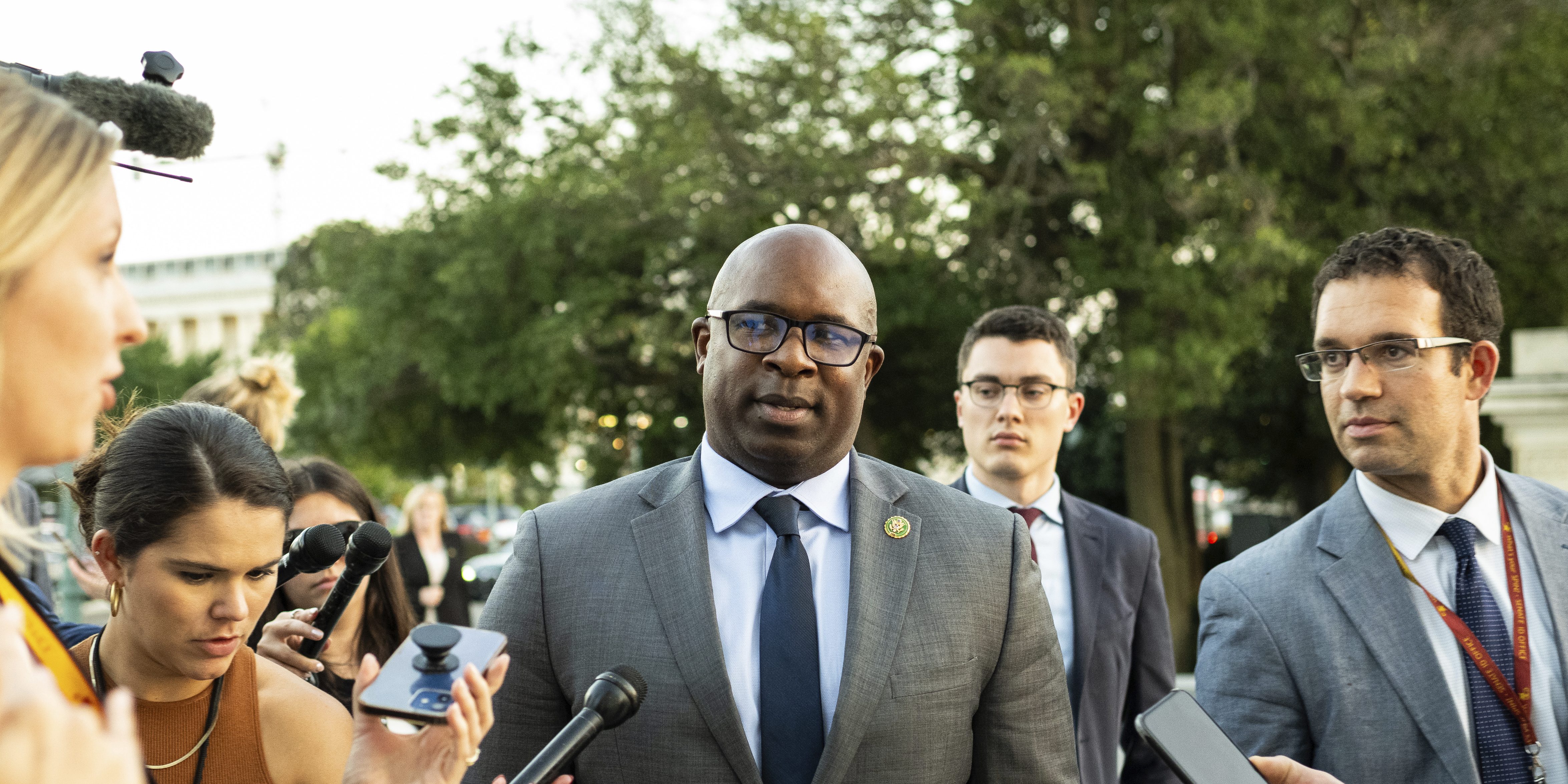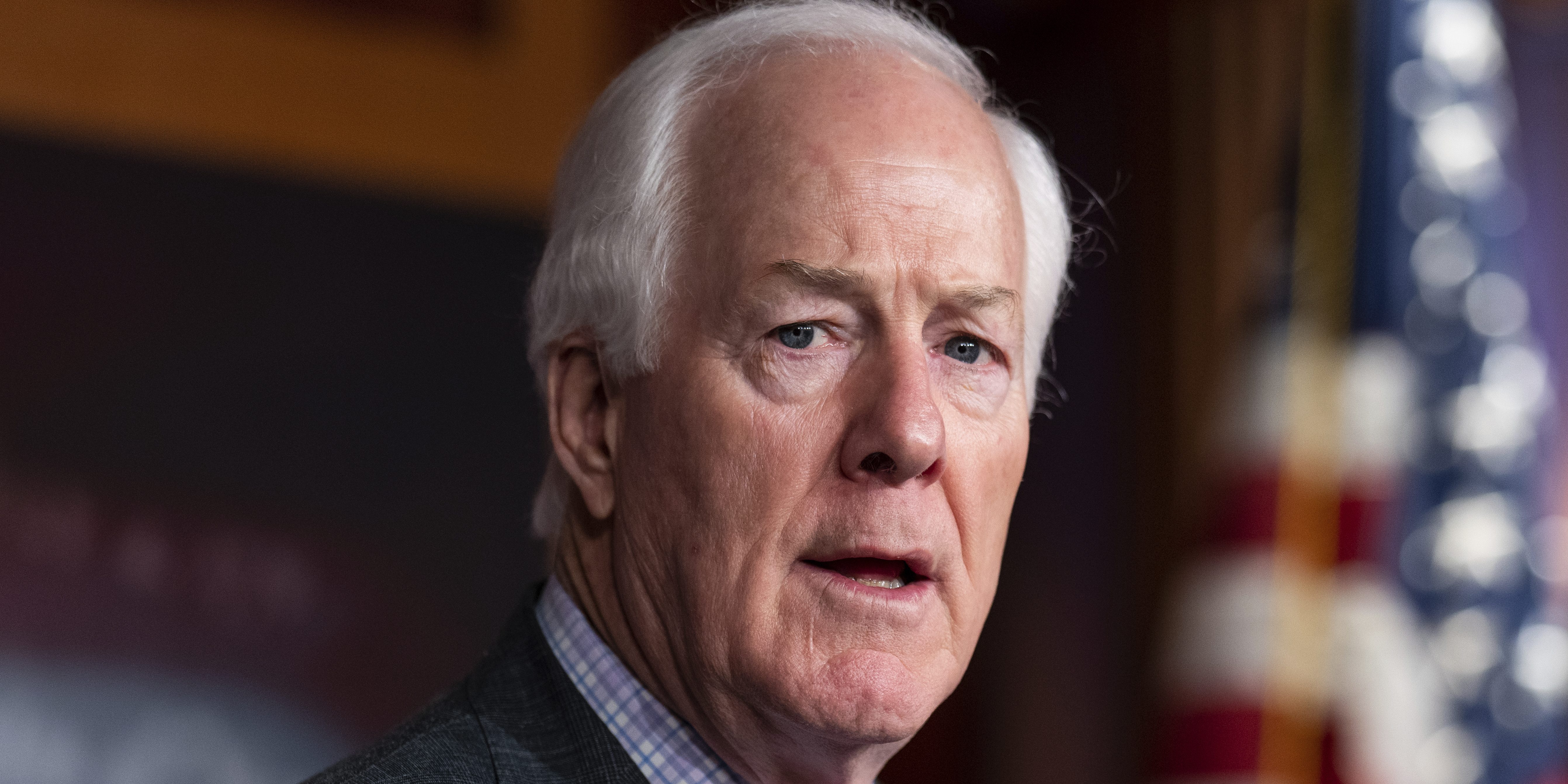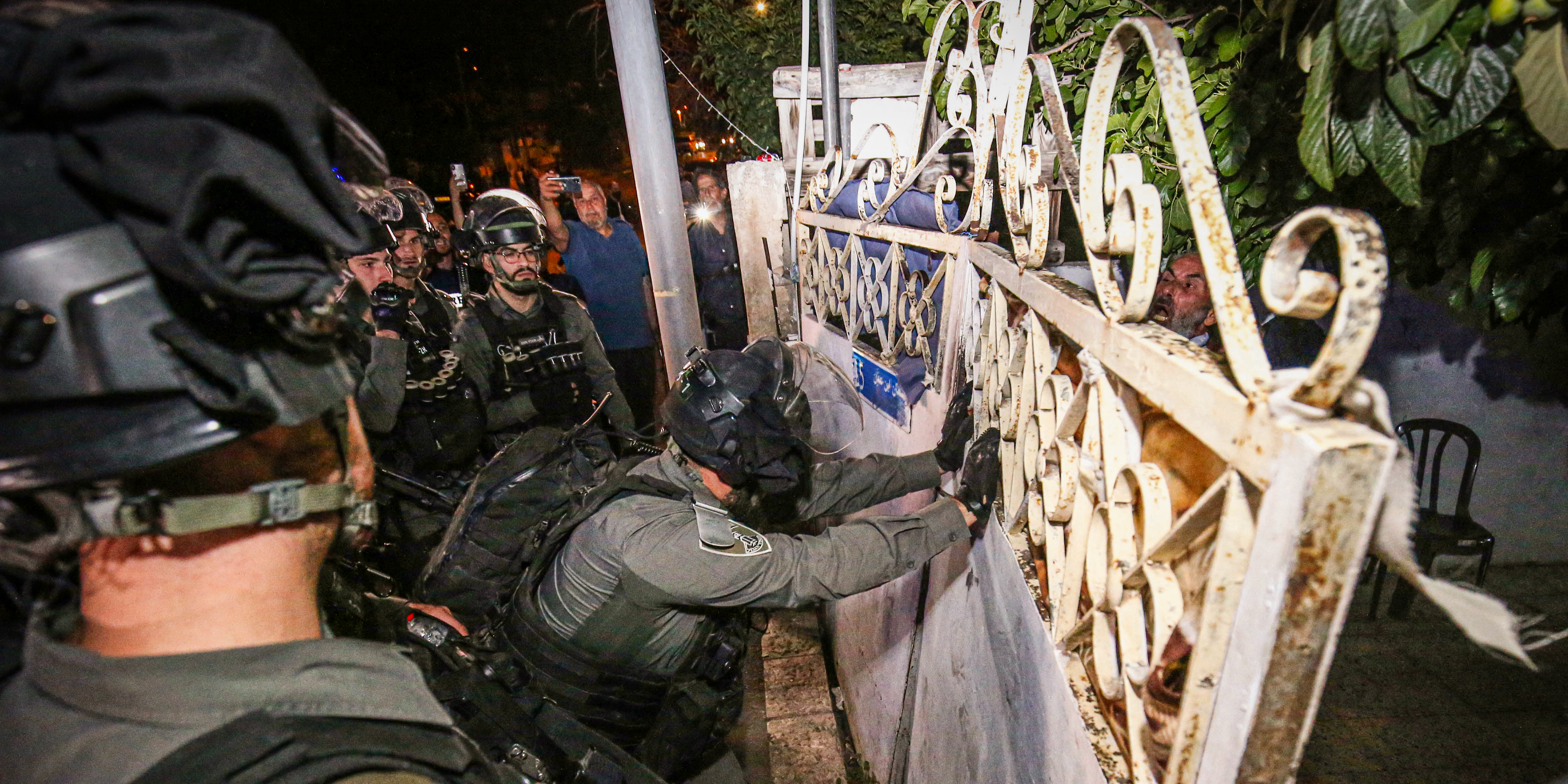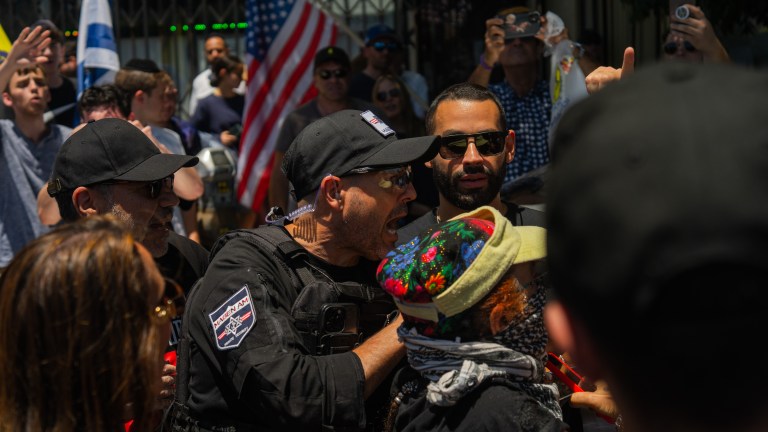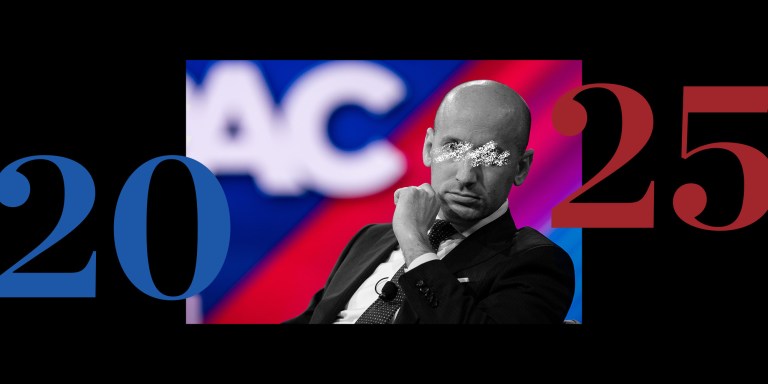The Netzah Yehuda battalion is an all-male unit of the Israel Defense Forces that was formed to allow ultra-Orthodox Jews to serve in the military while still complying with their religious beliefs, through accommodations like providing time for prayer and limiting interactions with women.
The battalion is also notorious for its alleged abuses of Palestinians and human rights violations in the West Bank, including an incident that led to the death of a 78-year-old Palestinian American man in 2022. These allegations landed the group, formally known as the Nahal Haredi, on a short list of IDF units that Secretary of State Antony Blinken intended to sanction last month. That move would have cut off the battalion’s supply of U.S. weapons and other military aid — until the Biden administration backed away from those plans under pressure from Israeli officials.
But the battalion has another reliable source of international support: a charitable nonprofit in the U.S.
“It’s absolutely incomprehensible that we provide tax write-offs to American citizens who use their funds to support groups and activities that are clear violators of human rights.”
The man leading that organization, which has funneled millions to the IDF group in recent years, is also a donor to the American Israel Public Affairs Committee, the leading pro-Israel lobbying group, which is running a multimillion-dollar campaign to oust critics of Israel’s human rights abuses from Congress and install stalwart pro-Israel allies in their place.
“It’s absolutely incomprehensible that we provide tax write-offs to American citizens who use their funds to support groups and activities that are clear violators of human rights and violators of what is essentially American policy,” said Jim Zogby, co-founder and president of the Arab American Institute. “And now, some of the very groups that we are holding up as sanctionable for their human rights behavior similarly are getting tax write-offs. It’s simply something that ought to end.”
The Biden administration was considering sanctioning Netzah Yehuda under the Leahy Laws, which are intended to stop the country from funding, supplying, or training security forces credibly accused of human rights abuses. State Department staffers sent Blinken a report earlier this year recommending that the battalion be sanctioned in order to disqualify it from receiving U.S. aid, according to ProPublica reporting. After making noises that he intended to follow up on the recommendations, the State Department ultimately backed down in response to pressure from Israeli officials.
Those sanctions would only apply to military aid. The government has the power to impose separate economic sanctions on foreign violators of human rights but has similarly declined to act in the case of this battalion.
Friends of Nahal Haredi, the U.S. nonprofit that supports the battalion, is led by a man named Stephen Rosedale, the founder and chairman of a company that operates more than 100 long-term care, medical rehab, and other healthcare facilities across seven states. Rosedale, a registered Republican, has given a total of $33,500 to AIPAC and its affiliated political action committees this cycle, including $25,000 to AIPAC’s super PAC, United Democracy Project, and $10,500 to AIPAC’s regular PAC. Rosedale is also backing the challengers picked by AIPAC to oust Reps. Jamaal Bowman, D-N.Y., and Cori Bush, D-Mo., in its plan to unseat the Squad. Rosedale has also given at least half a million dollars to various U.S. political campaigns since 2009.
Rosedale, Friends of Nahal Haredi, and the United Democracy Project did not respond to requests for comment.
“We know that AIPAC’s primary role is to prevent any accountability for the Israeli government and military,” said Eva Borgwardt, national spokesperson for IfNotNow, a Jewish advocacy group. “So it’s not surprising that their donors are also backing IDF battalions with scores of documented human rights violations.”
Netzah Yehuda’s alleged human rights violations include leaving a 78-year-old Palestinian American man detained during a raid in the West Bank outside overnight before he died of cardiac arrest. The man, Omar As’ad, was a U.S. citizen and had previously lived in Milwaukee, Wisconsin. Israeli officials dismissed two battalion officers after As’ad died but said it was not possible to determine whether their conduct caused his death. The State Department said it was “deeply concerned” by the circumstances of As’ad’s death and called for a thorough criminal investigation. No one was ultimately prosecuted for As’ad’s death.
“Why are we not treating AIPAC like the NRA when we know it’s funded by people who also support weapons sales with zero accountability for civilian deaths?”
“The question here is really for the Democratic Party,” Borgwardt said. “Are they going to side with the majority of Americans who want a ceasefire and conditions on weapons to Israel? Or are they going to side with AIPAC and its unconditional backing of Netanyahu’s slaughter of Palestinians in Gaza?”
AIPAC’s efforts to silence critics of Israel in Congress should make the group as repulsive to Democrats as the National Rifle Association, Borgwardt said. “Why are we not treating AIPAC like the NRA when we know it’s funded by people who also support weapons sales with zero accountability for civilian deaths including those of thousands of children?”
Rosedale’s support for AIPAC’s super PAC is his largest campaign contribution so far this year, and more than double the rest of the contributions he’s made since January. In March, Rosedale gave $1,000 to the campaign for Westchester County Executive George Latimer, whom AIPAC recruited last year to challenge Bowman. Rosedale also gave $2,000 to Wesley Bell, who AIPAC endorsed against Bush. In 2022, Rosedale gave $50,000 to AIPAC’s super PAC and $6,000 to its regular PAC.
Rosedale has given mostly to Democrats in recent years, including regular contributions to state Democratic parties. He gave this year to state Democratic parties in Maine, Wisconsin, Montana, and Delaware. Since January, he’s given to several other candidates backed by the pro-Israel lobby including $1,000 each in January to Reps. Shontel Brown, D-Ohio, and Ritchie Torres, D-N.Y. Combined, Brown and Torres have taken close to $1 million from AIPAC since 2022. Across the aisle, Rosedale gave $4,000 to Sen. Josh Hawley, R-Mo., in December.
AIPAC is expected to spend up to $20 million in each upcoming primary against Bowman and Bush. AIPAC recruited Latimer, Bowman’s challenger, and has endorsed both him and Bell, Bush’s opponent. AIPAC’s super PAC, United Democracy Project, dropped close to $2 million in the last week on ads attacking Bowman. AIPAC has bundled almost a quarter of Latimer’s total contributions so far, including almost half of his contributions in the final quarter of 2023. Both Latimer and Bell have faced criticism for taking money from Republican donors seeking to oust progressives in Democratic primaries.
AIPAC had planned to spend $100 million this cycle to oust Squad members critical of U.S. military aid for Israel. But as several Squad members have shored up their support and held steady on calls for a ceasefire in Gaza, AIPAC has shifted its strategy to focus instead on ousting Bowman and Bush, whom the group determined were the most vulnerable. After failing to recruit two potential challengers to run against Rep. Summer Lee, D-Pa., AIPAC ended up not spending on her race. Lee won her May primary against challenger Bhavini Patel by more than 20 percentage points. Reps. Rashida Tlaib, D-Mich.; Ilhan Omar, D-Minn.; and Alexandria Ocasio-Cortez, D-N.Y., have far outraised their current challengers.


